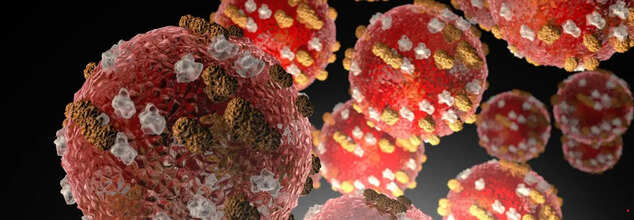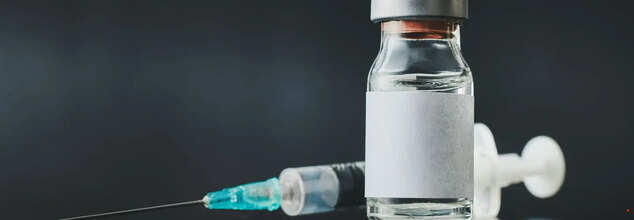
Image Credits: Canva
Man Dies From Brain Damage After Drinking Just One Sip Of Rotten Coconut Water
What was meant to be a refreshing drink from a tropical delight became a medical disaster for a 69-year-old man in Aarhus, Denmark. Following the ingestion of only a small quantity of coconut water from a rotten coconut, the man developed sudden onset of severe symptoms that resulted in his death within 26 hours of admission. This startling case, reported in a recent scientific study and widely debated in the international medical community, highlights a lesser publicized but potentially deadly foodborne hazard- fungal neurotoxins.
This is not merely an isolated event—this is a wake-up call for consumers and food safety agencies around the world, especially as pre-packaged and fresh fruits and vegetables become increasingly popular in home kitchens as well as tourist destinations.
The Danish man, whose name has not been released, bought a pre-hydrated coconut about a month ago. Left at room temperature on his kitchen table, the coconut had obviously spoiled. When he drank the water through a straw, the man quickly detected a bad flavor and discarded the coconut after examining its slimy, rotten center. Sadly, that one sip was enough.
Within a span of three hours, the man came down with a high fever, profuse sweating, and vomiting. Emergency workers encountered him pale, confused, and unbalanced—symptoms indicative of acute neurological distress. He was taken to the hospital, where an MRI confirmed massive brain swelling. Despite intensive treatment and a diagnosis of metabolic encephalopathy (a state in which the brain is impaired by chemical imbalances), his condition quickly deteriorated. He was pronounced brain dead just more than a day later.
Ssuspicions fell initially on the known food toxin bongkrekic acid, but continued study and tests revealed a sinister culprit: a fungus, Arthrinium saccharicola, in the man's windpipe and also in the rotting coconut.
This is a rare fungus, which produces 3-nitropropionic acid (3-NPA), an agent that is known to be highly neurotoxic. The toxin has the effect of breaking down the production of cellular energy in the brain, causing rapid swelling, loss of brain function, and death in extreme conditions. Importantly, there is no antidote for 3-NPA; supportive treatment is only offered, and this is centered on symptom management like encephalitis, seizures, and metabolic imbalance.
What's even more worrisome is that it wasn't much coconut water that triggered this effect. It only needed an infinitesimal dose of the toxin from the fungus to be devastatingly detrimental to the brain.
The toxicity of 3-NPA is not new. Chinese and some African medical journals have reported poisonings since the early 1990s. In all such cases, moldy sugarcane was the source. Patients experienced gastrointestinal upset—vomiting and diarrhea—followed by neurological symptoms such as confusion, seizures, and coma. In some cases, the illness was fatal.
This Danish case is the first reported instance linking Arthrinium saccharicola to spoiled coconut water, and as such, it is a highly unusual and alarming case of how this toxin can appear from various food sources based on storage and environmental conditions.
Why Refrigeration Isn't Optional for Food Safety?
Experts now want consumers to rethink how they store coconuts and other perishable fruits. Dr. Samuel Choudhury, a Singapore-based medical influencer with more than 300,000 followers, stressed in an Instagram post the need to keep pre-shaved coconuts refrigerated. "Always keep these coconuts in the fridge since they are already partially peeled," he explained. "Only whole coconuts should be kept at room temperature."
The outer husk of intact coconut serves as a natural covering, slowing down spoilage. But when shaved or pierced, the exposed white interior becomes very vulnerable to microbial and fungal invasion. Left on the kitchen counter, these coconuts will ferment, spoil, or acquire toxic fungi—without any signs of mold or warning until too late.
Significance of Consumer Awareness
Although coconut water is touted for its hydrating qualities and is a common staple in most tropical diets, this particular instance points to the potential dangers of mishandled or stored improperly natural drinks. With the worldwide trend towards fresh, unprocessed foods, education for consumers becomes increasingly vital.
Health officials all over the world are taking heed. In the wake of the incident, European food safety networks have reaffirmed requiring explicit labeling of fresh coconut products, such as expiration dates and storage in refrigerators.
Even a sip of improperly stored coconut water can prove deadly due to rare fungal toxins. Always refrigerate partially peeled or pre-shaved coconuts, consume them within a few days, and discard anything that tastes or smells off. When in doubt—throw it out.

World Health Day 2025 Puts Maternal And Newborn Health In Focus- Know Theme And Significance
Every year on April 7, World Health Day commemorates the establishment of the World Health Organization (WHO) in 1948. But more than a symbolic date, it is a brazen call to tackle pressing global health challenges. In 2025, the focus has shifted toward an issue central to human development and survival—maternal and newborn health.
This year’s theme, “Healthy Beginnings, Hopeful Futures,” isn’t just a slogan—it signals the beginning of a year-long WHO-led campaign that prioritizes the well-being of mothers and babies. In a world where nearly 300,000 women die each year from pregnancy-related causes and over 2 million newborns don't survive their first month, the message is loud and clear: we must act now.
Mothers' and babies' health isn't a women's issue—it's a global, family, and community issue. A healthy start in life is the foundation for future prosperity and health. If a mother lives through childbirth, if her newborn baby survives that critical neonatal period, the ripple effect reverberates out to the rest of society. Healthy children grow up with their mothers, which builds healthier communities and economies.
However, the global data is still grim. WHO estimates suggest that one preventable maternal or newborn death occurs every 7 seconds. Worse, 4 out of 5 nations are off track to achieve maternal survival goals by 2030, and 1 in 3 are at risk of failing to meet newborn death reduction targets.
What Does 'Healthy Beginnings, Hopeful Futures' Mean?
The WHO's campaign in 2025 will be aimed at preventing not just deaths but also making health systems more robust, pushing for equity, and providing women and newborns with quality care before, during, and after birth.
Important goals of this year's campaign are:
- To advocate for eliminating preventable newborn and maternal deaths
- To push for equitable access to quality care, particularly in rural and under-served areas
- Building postnatal care infrastructure, especially within the first 24 hours following childbirth—the time when the majority of maternal and newborn deaths are most likely to happen
- Facilitating mental health and noncommunicable disease care during the perinatal period
- Fostering inclusive laws and policies that protect women's health and rights
Understanding the Challenges
Consider India, for instance—a country that has progressed incredibly but continues to have mountainous challenges to overcome. India's maternal mortality ratio fell from 130 to 97 per 100,000 live births between 2014 and 2020. Yet the country still has 17% of all stillbirths and maternal deaths worldwide, a stark reminder of how much there is to be done.
In rural and disadvantaged communities, the availability of healthcare workers, postnatal care facilities, and emergency obstetric care remains very limited. A great number of infant deaths are due to preventable conditions such as sepsis, birth asphyxia, and conditions arising from preterm birth. Socioeconomic inequalities worsen these conditions, with women in poorer families frequently having no access to even basic maternal care.
What Needs to Change?
Enhancing newborn and maternal health is more than constructing hospitals—it's a matter of envisioning healthcare delivery systems that are sustainable, equitable, and women-focused.
That means:
- Increasing antenatal and postnatal care coverage to at least 80% as recommended by the WHO
- Training and mobilizing skilled birth attendants in underserved areas
- Establishing mother-supportive environments, such as clean water, adequate sanitation, and nutrition access
- Synchronizing mental health services with maternity care
- Securing policy-level protection by way of maternity benefits, parental leave, and anti-discrimination laws
Furthermore, health systems should also be in a position to handle indirect determinants of maternal death, like hypertension, diabetes, and mental illnesses, which are all underdiagnosed.
India's Pradhan Mantri Surakshit Matritva Abhiyan (PMSMA) and National Health Mission (NHM) have played a significant role in providing free monthly check-ups and institutional births. Programs such as Janani Suraksha Yojana (JSY) offer incentives to poor mothers to deliver safely.
Internationally, some areas such as Latin America and the Caribbean have already achieved WHO's goal of postpartum care coverage of 80%—serves as models that can be followed and replicated.
This year's theme also acknowledges that health is not born in clinics. It is a result of underlying human rights—education, decent shelter, wholesome food, clean air, and protection from violence and discrimination.
Policies that make women economically and socially empowered are as essential as policies for medical care. Whether legal protections for maternal leave or investing in girl child education, each move makes a difference to healthier generations.
Listening to Women, Supporting Families
At the center of this campaign is a crucial message—listen to women. Women require care that is respectful, compassionate, and inclusive. That means acknowledging the role of partners and families, supporting fathers, and providing community-based solutions that are responsive to cultural and socioeconomic settings.
Healthcare professionals, policymakers, and world leaders need to make listening to women's voices a priority, learn from their experiences, and co-create solutions that are effective on the ground.
As World Health Day 2025 unfolds, it calls on all of us—governments, health workers, communities, and individuals—to pledge ourselves to the health and dignity of mothers and newborns. Because when we invest in healthy beginnings, we create hopeful futures—not only for individuals, but for generations to come.

Credit: Canva
Measles Cases Double In US: Should You Get The Vaccine Now?
US now has more than double the number of measles cases it saw in all of 2024, with Texas reporting another large jump in cases and hospitalizations on Friday. Other states with active outbreaks — defined as three or more cases — include New Mexico, Kansas, Ohio and Oklahoma. The virus has been spreading in 'undervaccinated' communities, and since February, two unvaccinated people have died from measles-related causes.
The multi-state outbreak confirms health experts' fears that the virus will take hold in other U.S. communities with low vaccination rates and that the spread could stretch on for a year. The World Health Organization said last week that cases in Mexico are linked to the Texas outbreak.
Should You Get The Measles Booster Shot?
Measles is caused by a highly contagious virus that's airborne and spreads easily when an infected person breathes, sneezes or coughs. It is preventable through vaccines and has been considered eliminated from the U.S. since 2000.
The best way to avoid measles is to get the measles, mumps and rubella (MMR) vaccine. The first shot is recommended for children between 12 and 15 months old and the second between 4 and 6 years old.
People at high risk for infection who got the shots many years ago may want to consider getting a booster if they live in an area with an outbreak, said Scott Weaver with the Global Virus Network, an international coalition. Those may include family members living with someone who has measles or those especially vulnerable to respiratory diseases because of underlying medical conditions.
Adults with “presumptive evidence of immunity” generally don’t need measles shots now, the CDC said. Criteria include written documentation of adequate vaccination earlier in life, lab confirmation of past infection or being born before 1957, when most people were likely to be infected naturally.
A doctor can order a lab test called an MMR titer to check your levels of measles antibodies, but health experts don't always recommend this route and insurance coverage can vary. Getting another MMR shot is harmless if there are concerns about waning immunity, the CDC says.
People who have documentation of receiving a live measles vaccine in the 1960s don’t need to be revaccinated, but people who were immunized before 1968 with an ineffective measles vaccine made from “killed” virus should be revaccinated with at least one dose, the agency said. That also includes people who don’t know which type they got.

Credit: Canva
FDA Delays Approval Of Novavax COVID-19 Vaccine
The U.S. Food and Drug Administration (FDA) has postponed granting full approval to Novavax’s COVID-19 vaccine. The decision, which was anticipated by April 1, has been deferred as the agency says it requires additional information before proceeding.
While the Novavax vaccine is currently available under emergency use authorization, full approval by the FDA would pave the way for broader use and potentially reassure individuals seeking alternatives to mRNA vaccines, according to CNN.
This delay coincides with efforts by Republican lawmakers in at least seven U.S. states to restrict or ban mRNA vaccines. As reported by KFF Health News, some of these legislators are also urging federal regulators to revoke approval for mRNA-based COVID vaccines—shots that former President Donald Trump highlighted as a major achievement of his administration.
Unlike the mRNA vaccines developed by Pfizer and Moderna, Novavax uses a protein-based platform, a more traditional vaccine approach.
“As of Tuesday, April 1, we had responded to all of the FDA’s information requests and we believe that our [Biologics License Application] is ready for approval,” the company stated. Novavax added that the application “included robust Phase 3 clinical trial data that showed our vaccine is safe and effective for the prevention of COVID-19.”
The company also said it remains confident its “well-tolerated vaccine represents an important alternative to mRNA COVID-19 vaccines for the U.S.”
The delay follows leadership changes within the FDA. Dr. Scott Steele has been appointed acting director of the agency’s vaccine division after Dr. Peter Marks stepped down last month.
Meanwhile, U.S. Department of Health and Human Services (HHS) Secretary Robert F. Kennedy Jr.—a longtime vaccine opponent—has continued to circulate false claims about COVID vaccines and recently shared misleading information about the measles vaccine amid a deadly outbreak.
An HHS spokesperson told CNN that the FDA’s evaluation of the Novavax vaccine, like all vaccines, is undergoing an independent review process.
© 2024 Bennett, Coleman & Company Limited

